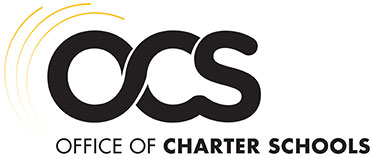Summative Evaluation
An initial charter is granted for a period not to exceed five years during which the school must demonstrate progress toward stated goals. The renewal process begins, in actuality, with the initiation of the charter. Rather than a snapshot view, the renewal process is based on the evaluation of the school’s Performance Framework and continuous school improvement efforts. The summative evaluation process is initiated one year prior to the terminal date of an existing contract so that the decision to extend or not to extend a charter is made in time to allow for the possibility of school closure and the requisite parental notice accompanying such action.
During the first semester of the last year of the charter contract, each charter school is formally evaluated by the Charter School Evaluation Committee. The cumulative Performance Framework results form the foundation for making the baseline renewal term recommendation for each school to the Evaluation Committee. The Evaluation Committee considers that recommendation along with the renewal application and site visit in making their charter renewal term or non-renewal recommendation.
The Office of Charter Schools put together a comprehensive document outlining the renewal process for schools whose contracts are up for renewal. The Renewal Application document outlines the process, application requirements for schools and the information that will be provided for schools by the Office.
Once the application is complete, it is distributed to the Evaluation Committee. The Evaluation Committee is comprised of six members, appointed by the Charter School Advisory Committee, as follows: two members of the Charter School Advisory Committee, two members of the Charter School Application Review Committee, and two community members.
Evaluation Committee members review the Application materials, as well as the Performance Framework results and baseline recommendation based on the Performance Framework results prior to the site visit. They will also begin their Renewal Assessment based on their review of the Application and Performance Framework.
The site visit includes interviews with the administrator, board, teachers, students, and parents, as well as classroom observations. Each Evaluation Committee member completes the Renewal Assessment prior to and throughout the day of the site visit. At the end of the site visit day, the Evaluation Committee meets to review each Committee member’s Assessment and comes to consensus on the Recommendation that will be given to the school. Specifically, the Committee comes to consensus on whether the school will receive a Renewal or Non-Renewal, and if a Renewal is recommended, whether it will be recommended for a three-year, four-year, or five-year renewal term. At this meeting, the Committee also lists recommendations for the school for the next contract term. Renewing the charter with a three-year contract places the school on probation and should be accompanied with a corrective action plan for future renewal of the charter. Probationary status may or may not apply to charter schools going through the renewal process for the first time.
If a renewal is recommended, the Office negotiates the contract with the school and puts together a comprehensive report that will be given to the Chancellor in December, submitted to UW-System in January and finally presented to the Board of Regents in February unless the Board of Regents schedule requires presentation at another time.

